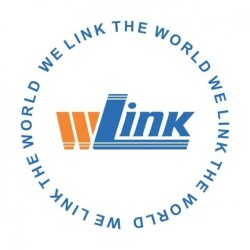High freight rate forecast affects the recovery of the global economy
The recovery of the global economy is threatened by high freight rates, which are likely to continue to soar in the coming months, according to the UNCTAD's ''Review of Maritime Transport 2021'' published on 18 November.

Rising freight rates affect the recovery of the global economy
UNCTAD's analysis in the "Review of Maritime Transport 2021" shows that if container freight rates remain at the current rate, global import prices and consumer prices could increase by 11% and 1.5% respectively between now and 2023.
In addition, the impact of high shipping charges will be even greater for Small Island Developing States (SIDS), which could lead to a 24% increase in import prices and a 7.5% increase in consumer prices. In Least Developed Countries (LDCs), consumer prices could rise by 2.2%, UNCTAD reports.
Global supply chains will be impacted by higher ocean freight costs for low value-added items produced in smaller economies, in particular, which could be severely eroded their comparative advantage.
Meanwhile, there are concerns that persistently high transportation costs will not only weigh on exports and imports, but could also undermine the recovery in global manufacturing.
The report said persistently high freight rates have affected global supply chains, noting that Europe, for example, is facing shortages of imported consumer goods from Asia such as home furniture, bicycles, sporting goods and toys.
According to the report, higher container freight rates will add to production costs, which can increase consumer prices and slow down national economies, especially in SIDS and LDCs, where consumption consumption and production are highly dependent on trade.
High freight rates will also affect low-value-added items such as furniture, textiles, clothing and leather products, whose production is often fragmented across low-wage economies well away from major consumer markets; UNCTAD predicts a 10.2% increase in consumer prices.
The analysis further forecasts an increase of 9.4% for rubber and plastic products, a 7.5% increase for pharmaceutical products and electrical equipment, 6.9% for motor vehicles and 6.4% for machinery and equipment.
UNCTAD urges countries to consider a portfolio of measures that includes infrastructure and services. Improving the quality of port infrastructure will reduce the average shipping cost in the world by 4.1%. In addition, costs will be reduced by 3.7% thanks to better trade facilitation measures and 4.4% thanks to improved shipping connections.
The United Nations agency called on governments to monitor markets to ensure a fair, transparent and competitive trading environment, and recommended greater data sharing and stronger cooperation among stakeholders in the maritime supply chain.
Read more:
- Global supply chain disruption expected through 2022
- When will supply chain disruptions and exorbitant freight rates end?
Source: Phaata.com (According to ContainerNews)
Phaata.com - Vietnam's First Global Logistics Marketplace
► Connect Shippers & Logistics companies faster












.png)










.jpg)


